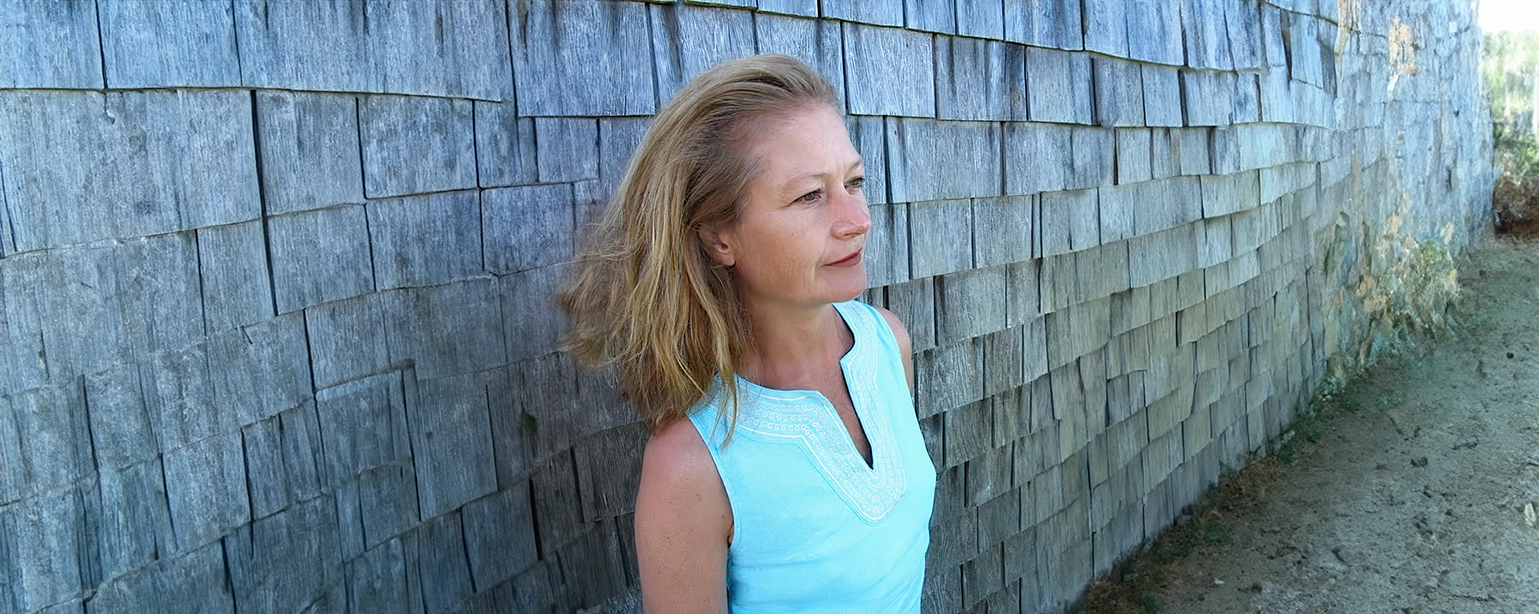Literary Journeys with Mary Petiet
Mary Petiet shares her thoughts on “The Angel’s Game” by Carlos Ruiz Zafón, a supernatural mystery thriller that captivated her from the first page.
Mary Petiet is a literary force to be reckoned with. An award-winning author, poet, and publisher, she hails from the picturesque Cape Cod, Massachusetts, where the natural beauty of the landscape often finds its way into her evocative writing. With an MA (Honours) in Mediaeval History from the University of St. Andrews, Mary combines her academic background with a passion for storytelling, creating works that resonate with readers on multiple levels. As the founder of Sea Crow Press, an independent publishing house, she champions diverse voices and narratives, contributing to a rich tapestry of contemporary literature. Her debut book, “Minerva’s Owls,” was an Indie Book Awards international finalist, setting the stage for her subsequent works, including “Moon Tide: Cape Cod Poems” and “Wash Ashore: a Tale of Cape Cod.” In this interview, Mary shares her literary inspirations, favorite reads, and the profound impact of eco-consciousness on her writing. Join us as we delve into the mind of a writer whose love for history, nature, and storytelling continues to captivate audiences worldwide.
What’s the last great book you read?
The last great book I read was The Angel’s Game by Carlos Ruiz Zafón. It’s a supernatural mystery thriller and it’s impossible to put down as it unfolds further into a crushing love story. It’s moody and evocative and set in a very realistic early 1900’s Barcelona. I picked it up in a second hand shop in Amsterdam and was immediately transported. If you liked The Magus by John Fowles, this is your next great read.
What’s your favorite book no one else has heard of?
Hands down The Seven Pillars of Wisdom by T.E. Lawrence is my favorite obscure book. What people have probably heard of is the epic movie Lawrence of Arabia directed by David Lean, which is based on the book. In Seven Pillars Lawrence recounts his World War I experience as a leading figure in the Arab Revolt, spinning an epic tale of the end of the Ottoman Empire, war in a hostile environment, the undulating life of the desert tribes, their hopes for political freedom and ultimately the betrayal of the hopes they fought for. It’s worth reading for the prose alone: Lawrence has blended a classical, Shakespearean prose to a post-war modernity which is unique and captivating. My second favorite book no one has ever heard about is called Island in the Sea of Time by S.M. Stirling. It features Nantucket Island getting cast centuries back in time and captivated me from page one.
Are there any classic novels that you only recently read for the first time?
I have been just over half-way finished with Brave New World by Aldous Huxley for several months. It’s staring me down from my book pile right now, but even though it’s an interesting if grim view of the future, I can’t seem to finish it.
You’re organizing a party. Which two authors, dead or alive, do you invite?
Mark Twain and Ocar Wilde. I’d want the party to be witty and loads of fun. Turns out, the two might actually have met in 1892 in a German hotel!
What genres do you especially enjoy reading?
I love time travel, the occult, and historical fiction. The Outlander series pretty much delivers all of that. I love to read straight history as well, because history is about stories and I love to read stories. My favorite historical period is the late middle ages and I love Sharon Kay Penman’s fictionalized it. I love historical mysteries as well, such as The Daughter of Time by Joesphine Tay, a detective cliff-hanger about Richard III.
What kind of reader were you as a child?
Apparently, the day I learned how to read, no one could find me. I was usually an active kid you could hear miles away, but suddenly: silence. A search party was launched in the house and yard, and I was finally found alive and well in my room completely lost in a book. I’ve been lost in books ever since.
Who is your favorite fictional hero or heroine?
I’ve got a real soft spot for Jamie Fraiser in the Outlander series by Diana Gabaldon.
What books and authors have impacted your writing career?
The poetry of Mary Oliver has definitely influenced my work. I know the Cape Cod landscape she writes about intimately and I am also inspired by it. Her work has a definite eco-consciousness and it presages a new genre: the eco genre. Eco poetry and eco fiction are emerging genres, and both my poetry and fiction have a definite eco-ness to them. One of the main themes in my novel Wash Ashore is the preservation of ancient, precious land, which places the story in the new genre eco fiction, and that might well have originated with my understanding of Mary Oliver.
What books do you find yourself returning to again and again?
That’s a mish-mash because I read widely. I return to the Iliad because Homer never fails to stop me short with the beauty of his words and images. I return to Seven Pillars of Wisdom to dip in and out for adventure or the prose, I return to Wilbur Smith because the discovery of his books helped me survive the pandemic lockdowns and I love the epic sweep of his adventures. I return to travel books by Freya Stark and Wlfred Thesiger for armchair travel, and sometimes I return to Emerson and Mary Oliver for good old New England straightforwardness.
What do you plan to read next?
The North Water by Ian McGuire is on top of my to-be-read pile and it looks like a keeper! The first line on the back cover is: A ship sets sail with a serial killer on board. What could possibly go wrong?


